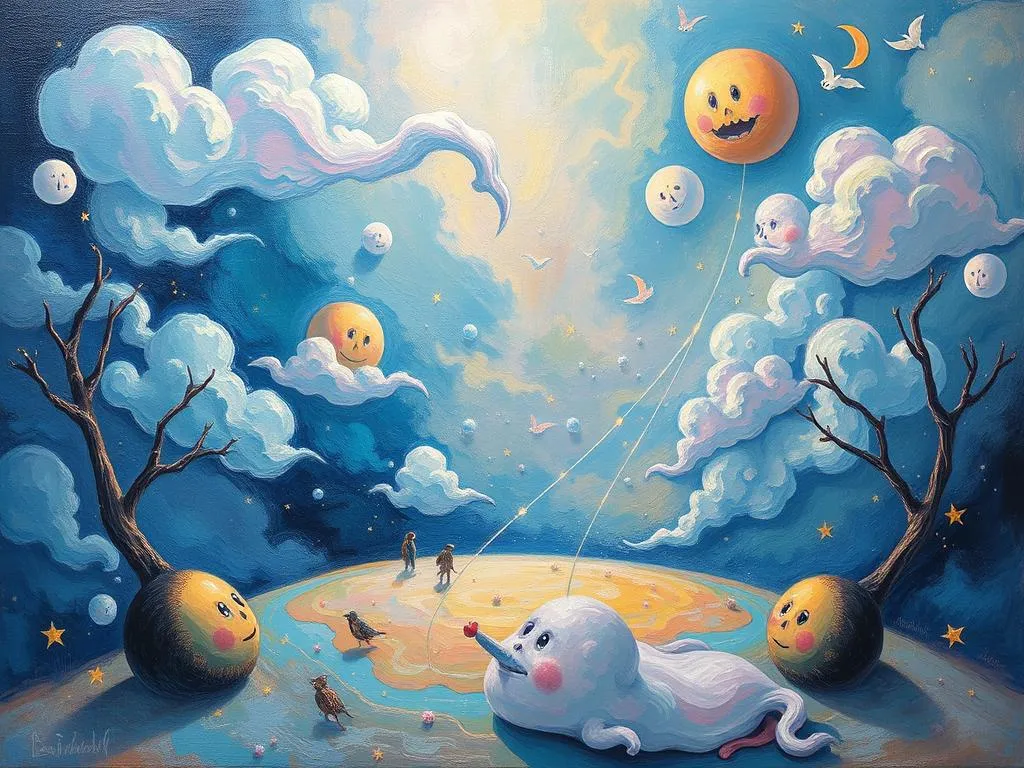
Dreams about the afterlife have intrigued humanity for centuries, stirring a mix of fear, curiosity, and hope within our subconscious. These dreams often prompt profound questions about existence, mortality, and what may lie beyond our earthly experiences. The allure of exploring what happens after death resonates deeply with our innate desire to understand both life and the unknown. In a world filled with uncertainty, dreams about the afterlife may serve as a bridge between our conscious thoughts and the mysteries that lie ahead.
Symbolism and Meaning
When it comes to dreams about the afterlife, various symbols play crucial roles in shaping their meanings. The afterlife itself can represent a transitional phase, not only between life and death but also between different states of being or stages of personal growth.
One common symbol in these dreams is the presence of light. Light often signifies enlightenment, knowledge, or a deeper understanding of oneself. In many cultures, seeing a bright light may symbolize the soul’s journey toward a higher plane, suggesting that the dreamer is on the verge of a significant awakening or personal transformation.
Another prevalent symbol is the grave or tombstone. This can evoke feelings of loss or regret, indicating unresolved issues or emotions that the dreamer may be grappling with in their waking life. The grave can also symbolize the end of a chapter, prompting the dreamer to reflect on what they may need to let go of to move forward.
Figures of authority in the afterlife, such as angels or guides, often appear in these dreams, embodying a sense of protection and guidance. Their presence might suggest that the dreamer is seeking reassurance in their life choices or grappling with feelings of inadequacy. Alternatively, these figures can represent the dreamer’s internal compass, urging them to trust their instincts when faced with challenging decisions.
The journey aspect of the afterlife, such as traveling through a tunnel or across a river, can symbolize the transition between different phases of life. This journey may reflect the dreamer’s current struggles, suggesting that they are in the process of navigating change and transformation. It can also indicate a desire for closure in certain areas of life or a need to confront fears surrounding death and the unknown.
The interpretation of these symbols can vary based on cultural, spiritual, and personal beliefs. For instance, someone who holds a religious view of the afterlife may interpret their dream differently than someone who identifies as agnostic or atheistic. Understanding these nuances is essential for delving into the deeper meanings behind such dreams.
Key Scenarios and Variations
Dreams about the afterlife can manifest in numerous scenarios, each offering distinct interpretations based on the context and emotions involved. For example, a dream in which one finds themselves crossing over to the afterlife might indicate a significant life change or the end of a particular phase. This could be a job transition, the end of a relationship, or even the resolution of a long-standing conflict. The act of crossing over can symbolize the dreamer’s acceptance of this change and their willingness to embrace new beginnings.
Conversely, a dream where the individual is lost in the afterlife may suggest feelings of confusion or being overwhelmed in their waking life. This disorientation could reflect anxiety about upcoming changes or a struggle to find one’s place in the world. The dreamer may be grappling with unresolved issues, and the inability to navigate the afterlife could indicate a fear of the unknown or a reluctance to confront these challenges.
Another variation involves encountering deceased loved ones. Such dreams can serve as a source of comfort or closure, allowing the dreamer to process their grief. These encounters may symbolize unresolved feelings or a longing for connection. The presence of a loved one in the afterlife can also indicate that the dreamer is receiving guidance or encouragement from beyond, reinforcing the notion that love transcends the boundaries of life and death.
Dreams that depict a judgment scenario, where the dreamer is being evaluated for their actions, can evoke feelings of guilt or self-reflection. This type of dream might arise when the dreamer is wrestling with personal morals or choices, encouraging them to reconsider their behavior and its impact on themselves and others. Such dreams serve as a reminder to evaluate one’s life decisions and consider where changes might be necessary for personal growth.
Finally, dreaming about rebirth or resurrection in the context of the afterlife points toward significant personal transformation. This scenario often reflects a desire for renewal, suggesting that the dreamer is ready to shed old habits or beliefs that no longer serve them. The dream might indicate that they are on the cusp of a new beginning, whether in a personal or professional capacity, encouraging them to embrace change and growth.
These varying scenarios highlight the complexity of dreams about the afterlife, emphasizing that context and emotional response play critical roles in shaping their meanings.
Real-Life Connections and Takeaways
Understanding dreams about the afterlife can provide valuable insights into our waking lives. These dreams often serve as a mirror, reflecting our deepest fears, desires, and unresolved issues. Engaging in self-reflection can help the dreamer connect the dots between their dream experiences and their current life situations.
To begin this process, readers can consider journaling about their dreams. This practice involves writing down the details of the dream immediately upon waking, capturing the emotions, symbols, and scenarios present in the experience. By revisiting these entries over time, individuals can identify recurring themes and patterns that may suggest areas of their life that require attention or exploration.
It’s also beneficial to contemplate the emotions experienced during the dream. Were feelings of fear or anxiety prevalent? Or did the dream evoke a sense of comfort and peace? Understanding these emotional responses can provide clues about what the dreamer is grappling with in their waking life. If fear dominates the dream, it may signify unresolved issues or anxieties that need addressing. Conversely, feelings of comfort may indicate acceptance or a desire for reassurance in navigating life’s transitions.
Engaging in conversations with trusted friends or family members can further enhance this self-reflective practice. Discussing dreams can lead to new perspectives, allowing individuals to process their thoughts and feelings more effectively. Moreover, sharing the experience of a dream can help validate the emotions tied to it, fostering a sense of connection and understanding.
Additionally, exploring personal beliefs about the afterlife can offer clarity in interpreting these dreams. Whether one subscribes to a particular religious belief, a philosophical viewpoint, or an agnostic stance, understanding personal perspectives on mortality can shape how these dreams are perceived. Engaging with literature, art, or spiritual practices related to the afterlife may also provide deeper insights and facilitate a sense of peace regarding one’s beliefs.
Incorporating mindfulness practices into daily routines can also assist in navigating the emotions surrounding dreams about the afterlife. Techniques such as meditation or deep-breathing exercises can help individuals connect with their inner selves, fostering a greater understanding of their fears and desires. Mindfulness encourages individuals to confront their thoughts without judgment, promoting emotional balance and clarity.
Lastly, readers should consider how these dreams may serve as a call to action. If a dream evokes feelings of regret or unresolved issues, it may be time to take steps toward healing and closure. This could involve reaching out to someone with whom one has unfinished business or seeking professional help to navigate deeper emotional challenges.
In conclusion, dreams about the afterlife are rich in symbolism and meaning, offering profound insights into our subconscious fears, desires, and personal growth. By reflecting on these dreams and connecting them to real-life experiences, individuals can gain clarity and understanding in their waking lives. As we navigate the complexities of existence, these dreams may serve as guiding lights, encouraging us to confront the unknown and embrace the journey toward self-discovery and transformation.







